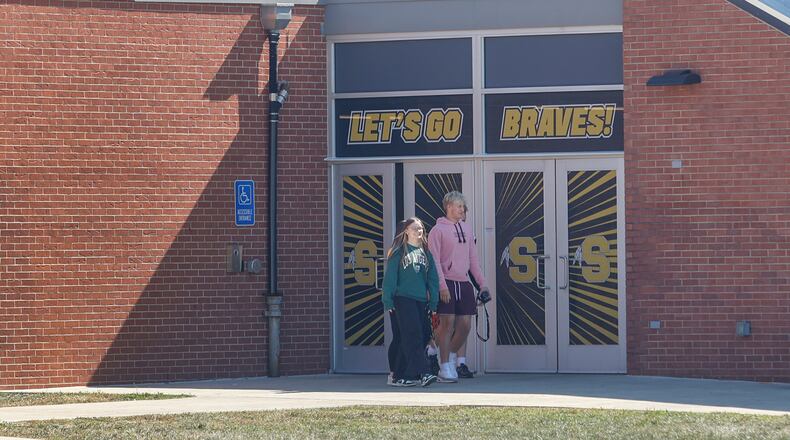If it passes, the five-year levy would raise around $3.1 million each year, according to the district. This could change as salaries change. For a resident with $50,000 in annual taxable income, the tax would cost $500 per year.
The levy, placed in front of voters for the first time in May, failed by almost 70% of votes.
“We think that it was just a complex levy type, a new levy type, and we want to make sure that folks are informed and need to make sure folks are informed about what this levy means and what it does,” said Superintendent Brian Kuhn.
The biggest misunderstanding appears to have been the difference between an income tax and an earned income tax, Kuhn said.
“I think we had folks in our community who are retired, who don’t have earned income that were still unsure whether we would tax them,” Kuhn said.
The district last passed a new operating levy in 2014, which it then projected would support it for four years, Kuhn said. Funds were stretched for 11 years through a combination of strategies including how the money was managed and changes in the state funding formula.
Operating expenses include salaries, maintenance, materials, utilities, vehicles, equipment and more.
Voters previously passed a bond issue to fund new school buildings, and Kuhn emphasized that those funds could only be used for the buildings, not for daily operating expenses.
Kuhn said 94% of the district’s revenue comes from state funding and local property taxes.
The district makes projections for five years out, predicting more than $23 million in total revenue for 2025 and 2026, and more than $24 million each year for 2027-2029, followed by about $25 million in 2030. But the district anticipates more than $600,000 in deficit spending this schoolyear, and up to almost $2 million in deficit spending in 2030.
“This is one of those cycles where you can’t cut your way out,” Kuhn said. “Costs continue to rise, expenses continue to go up and so we need a levy to stabilize that.”
The district, like many others, has seen an increase of more than $1.1 million in special education program costs from 2019-2020 to 2024-2025, Kuhn said.
If the levy doesn’t pass, the district will reduce “the equivalent of one support staff position,” which doesn’t mean one staff member will be cut, but rather that hours will be trimmed here and there, Kuhn said. It would also increase the general student fee from $80 to $100 and pay-to-participate sports fees would go up for middle school students, from $100 to $120. The cap for families would go from $400 to $500. High school rates would remain at $200.
“There is no one magical cut that’s just going to keep us afloat; we have to take a scalpel and slowly make changes to try to keep our operations, our offerings to what folks are accustomed to,” Kuhn said. “The longer we go in a deficit spending cycle, the longer we are unsuccessful at the ballot, the more the scalpel turns into a sledgehammer and we start to have to get rid of things that are part of Shawnee’s identity.”
The district would place the levy back on the ballot this coming May if it fails.
Many people have personal finances on their minds and Clark-Shawnee is one of many asking for financial support, Kuhn said.
There are two active continuing levies collecting property taxes for the district with one being a $4,721,331 fixed sum (meaning it will collect the same amount regardless of property values, but could increase with new residents) and one being at the 20-mill floor (which will fluctuate for individual property owners based on property values).
Several district residents said they would vote no, citing the rise of property taxes and other bills.
Dotty Estridge, in a comment on social media, suggested the district cut salaries of administrative staff instead. Toschia Mooney, in a comment, said she “hate[s] voting no on schools” and other items but rising property taxes and utility prices have become too much.
Parent group Clark-Shawnee Athletic Boosters urged voters to approve the levy.
“We are the highest graded School in Clark County. As our district continues to grow, we need this levy for operating costs and in order to maintain this amazing 4.5 grade,” the group wrote on social media. “We need you to get everyone out and vote yes for this levy.”
The district is working on scheduling levy information sessions.
Credit: Bill Lackey
Credit: Bill Lackey
About the Author


